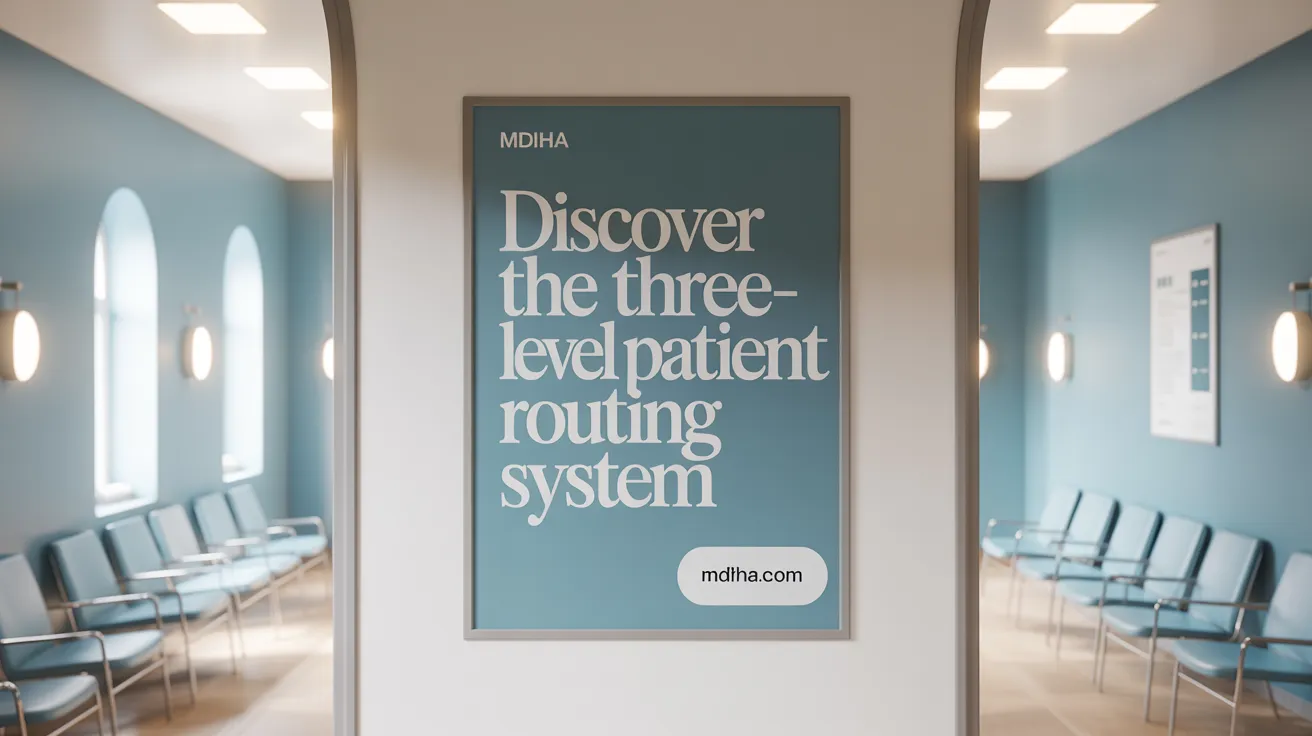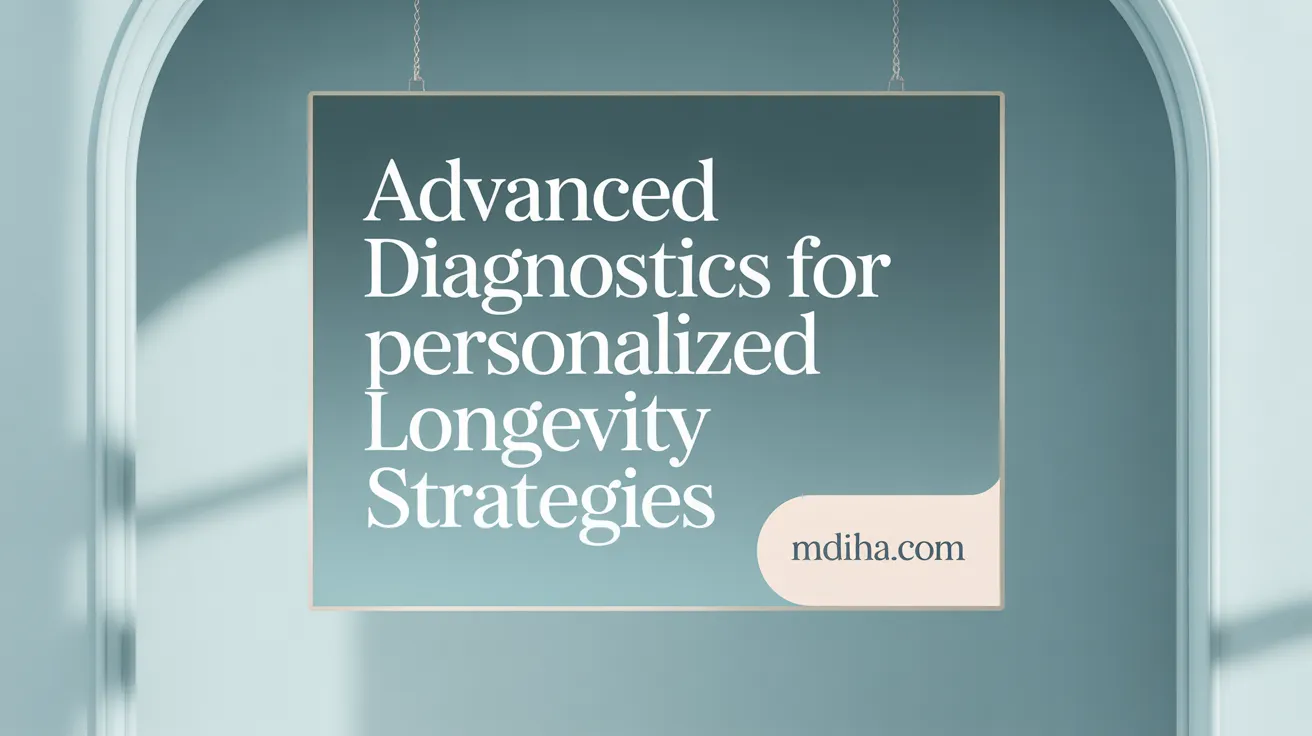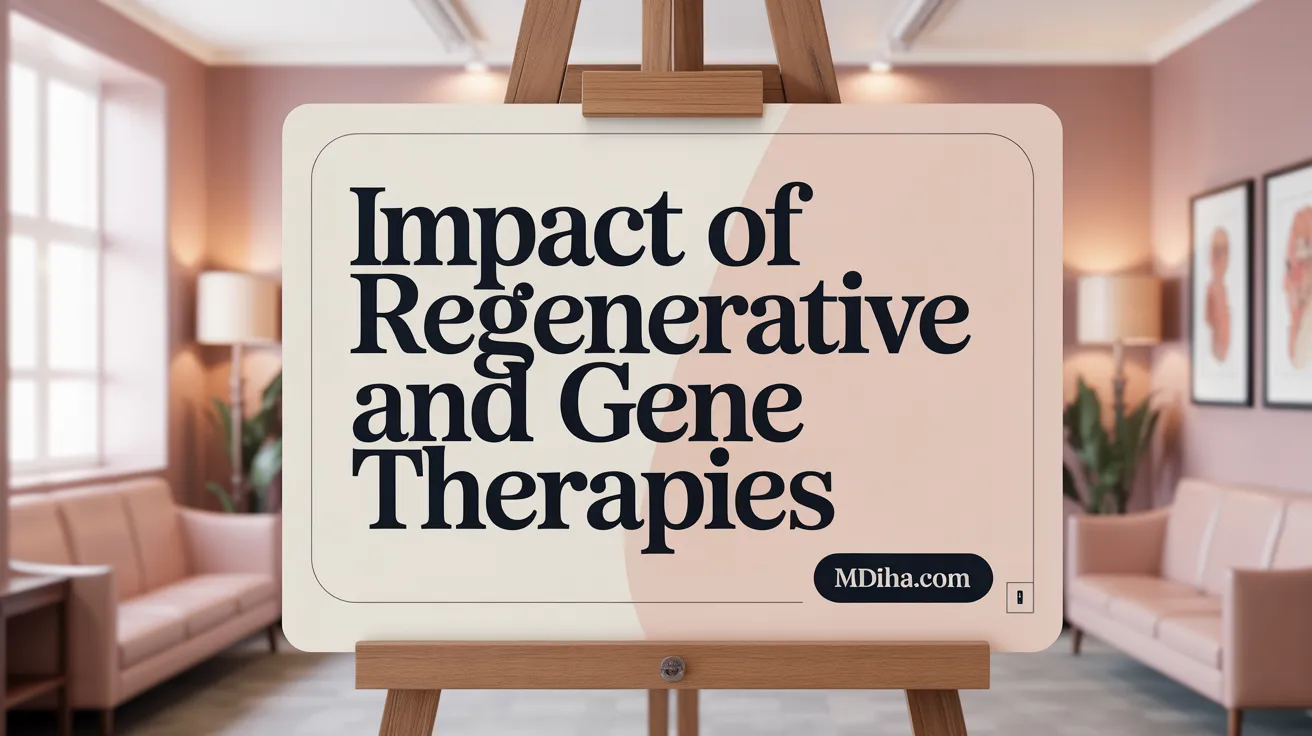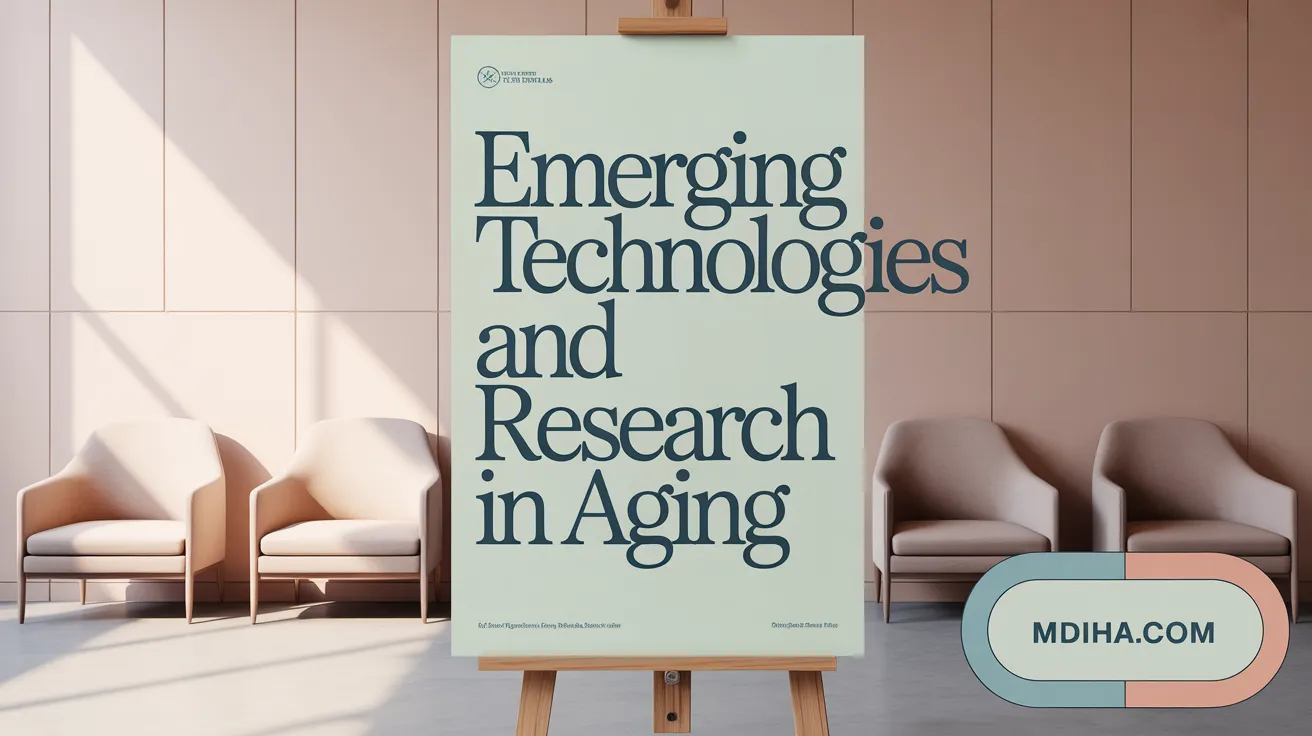Exploring the New Era of Longevity Medicine
Overview of longevity clinics
Longevity clinics have emerged as specialized medical centers focused on enhancing active human longevity by integrating cutting-edge diagnostic and therapeutic technologies. These clinics utilize comprehensive assessments including genetic testing, epigenetic clocks, blood biomarkers, imaging diagnostics, and advanced functional tests to evaluate biological versus chronological age. Their primary goal is to predict health trajectories and enable early interventions that prevent or delay age-related diseases.
Emergence of personalized, proactive therapies
Personalized medicine is at the core of longevity clinics, leveraging data-driven approaches to tailor interventions uniquely suited to each individual’s aging profile. Clinics employ advanced therapies such as stem cell treatments, hormone replacement, peptide therapies, and even experimental approaches like senolytics and gene therapy. Digital health tools, including wearables and remote monitoring, facilitate continuous data collection and personalized adjustments to treatment plans. This proactive model goes beyond traditional care by emphasizing disease prevention, early detection, and functional optimization.
Importance of extending healthspan and biological age reduction
Extending healthspan—the duration of life spent in good health—is a central objective in longevity medicine. By focusing on reducing biological age, clinics aim to slow or reverse cellular and molecular aging processes, thereby delaying functional decline and the onset of chronic conditions. The integration of scientific research, individualized diagnostics, and targeted therapies allows for interventions designed to maintain vitality and independence longer. This approach addresses the growing demographic challenge of an aging population and supports sustainable health solutions for the future.
Understanding the Framework of Advanced Longevity Clinics

What is the operational model of cutting-edge longevity clinics?
Longevity clinics employ a versatile operational framework centered on an Analytical Center for Research and Data, which functions as the hub for research, data management, and personalized healthcare delivery. This center leverages advanced data analysis techniques such as Clustering and Classification Techniques, Time Series Analysis in Healthcare, and Association Rule Mining and Anomaly Detection to interpret complex biological data.
Patient care is structured through a Three-Level Patient Routing System: remote monitoring and telemedicine facilitate continuous observation; in-clinic diagnostics and treatments provide immediate medical interventions; and individualized scientific studies enable experimental therapies tailored to patient-specific needs. This comprehensive approach ensures continuous, data-driven, personalized care.
What technologies and approaches do these clinics employ?
Advanced diagnostics form the backbone of these clinics and include imaging modalities, genetic and epigenetic testing, comprehensive blood biomarker panels, and Biomarkers of Aging and Functional Capacity to assess biological versus chronological age. The Healthy Longevity Clinic Framework supports the integration of such technologies.
Therapeutic interventions span regenerative medicine, hormone replacement therapy, Peptide Therapies for cellular signaling modulation, senolytics, Gene Therapy technologies in aging intervention, and pharmacological treatments designed to target aging pathways. These are exemplified by Medical Technologies in Longevity Clinics and Experimental Therapies: Senolytics, Gene Therapy. Digital health tools such as wearables and telemedicine platforms augment patient monitoring and engagement, enabling proactive health management, as described in Digital Health Tools in Longevity and Digital Health Tools in personalized longevity programs.
Additionally, leading centers like the Healthy Longevity Clinic California provide advanced diagnostic tools in longevity medicine, including extensive bloodwork panels, genetic testing for longevity, and personalized longevity programs aiming to lower biological age and improve healthspan. Techniques such as Epigenetic Clocks in aging assessment are deeply integrated to quantify aging biology precisely.
What challenges do longevity clinics face?
The field of longevity medicine faces several critical challenges. Standardizing protocols across practices remains complex due to the heterogeneity of interventions and patient populations, a concern highlighted under Standardization and Regulation Issues. Regulatory pathways for novel therapies, including gene-based and senolytic treatments, require rigorous validation, as discussed in Efficacy and Ethical Concerns.
Ensuring therapeutic efficacy and safety demands ongoing, well-designed clinical trials, as noted under Ongoing Clinical Research Needs. Ethical considerations around experimental treatments and long-term effects must be addressed transparently. Sustained investment in research and integration of emerging scientific evidence are necessary for the continued advancement of personalized longevity care, supported by Growth Potential in Longevity and Biotech Markets and Investment Interest in Longevity Clinics.
Personalized Diagnostics: From Biological Age to Tailored Therapies

How do biomarkers and aging clocks contribute to personalized care?
Biomarkers of Aging and Functional Capacity and Epigenetic Clocks in aging assessment are cornerstone technologies in modern longevity medicine, offering quantitative measures that distinguish biological age from chronological age. These tools enable clinicians to assess an individual's physiological state and predict future health trajectories, beyond what traditional metrics offer. Such precise assessments inform personalized, preventive, and therapeutic strategies tailored to the patient's unique aging profile, optimizing interventions to delay onset of age-related diseases and enhance healthspan.
What advanced diagnostics are utilized in longevity clinics?
Longevity clinics utilize a comprehensive suite of advanced diagnostics to build a detailed understanding of patient health. These include extensive bloodwork panels to detect biochemical imbalances, genetic testing for longevity to uncover predispositions, and telomere length testing to evaluate cellular aging. Mitochondrial function evaluation reveals metabolic health at the cellular level, while body composition analysis helps assess muscle and fat distribution. Neuroimaging diagnostics detect early neurodegenerative changes, and comprehensive cancer screening are incorporated for early detection. Additional tests such as coronary calcium scans and gut microbiome analysis provide insights into cardiovascular health and digestive system balance, respectively. Together, these diagnostics construct a multidimensional health profile enabling personalized longevity programs.
Examples of comprehensive testing (genetics, telomere length, neuroimaging)
- Genetic Testing: Identifies inherited risk factors and pharmacogenomic profiles to guide therapy selection.
- Telomere Length : Measures chromosomal end caps as a biomarker for cellular aging and regeneration capacity.
- Neuroimaging: Employs MRI and other modalities to detect structural and functional brain changes related to aging and cognitive decline.
These comprehensive tests, integrated with innovative analytic frameworks such as the Healthy Longevity Clinic Framework and continuous monitoring technologies like those used at Sheba Longevity Center, empower longevity clinics to design individualized interventions aimed at extending healthy longevity.
Innovative Therapeutic Interventions Transforming Patient Outcomes

Which therapeutic interventions define current longevity treatments?
Longevity medicine integrates a spectrum of advanced therapeutic interventions aimed at extending healthspan and improving quality of life. Central to these are stem cell treatments and regenerative therapies that facilitate tissue repair and functional rejuvenation. Hormone optimization, including replacement therapies, addresses age-related endocrine declines, contributing to enhanced vitality.
Experimental approaches such as senolytics selectively eliminate senescent cells, mitigating chronic inflammation and tissue deterioration. Gene Therapy technologies in aging intervention are employed to rectify or modulate aging-related genetic pathways, unlocking potential for durable anti-aging effects.
Additionally, Peptide Therapies for cellular signaling modulation add a layer of precision in cellular signaling modulation. The incorporation of functional medicine emphasizes a holistic, integrative approach including disease prevention, early detection, and personalized health strategies to optimize overall vitality.
How do these therapies impact patient journeys?
These interventions collectively contribute to a substantial reduction in biological age markers and deceleration of age-associated functional decline. By targeting fundamental aging processes, they enable patients to reclaim physiological resilience and prevent the onset of chronic diseases.
The personalized nature of these therapies allows for tailored treatment regimens that address individual health profiles and genetic predispositions. This customization enhances efficacy, promotes sustained health improvements, and supports prolonged independence.
Consequently, patients experience not only improved physical function but also enhanced cognitive performance and emotional well-being. These gains culminate in extended healthspan—maximizing disease-free years and transforming the traditional patient experience from reactive treatment to proactive lifelong wellness management.
Digital Health and Continuous Monitoring Enhancing Longevity Care
What digital tools are utilized in longevity clinics for patient monitoring?
Longevity clinics employ advanced digital tools including wearables like Oura ring monitoring and continuous glucose monitors, telemedicine platforms, and specialized health applications such as The Sheba App for Health Monitoring. These technologies enable continuous, real-time monitoring of vital biometric data, facilitating an in-depth understanding of patients’ health status outside traditional clinical environments.
How do these tools improve care delivery?
By integrating Digital Health Tools in longevity technologies, clinics can collect comprehensive health data remotely, allowing for timely, personalized intervention adjustments based on dynamic patient metrics. Telemedicine platforms expand accessibility to expert guidance, while health apps enhance patient engagement by providing feedback and promoting adherence to therapeutic regimens.
Remote patient monitoring and real-time health data utilization
Remote monitoring technologies capture ongoing health parameters, enabling early identification of physiological changes related to aging and chronic disease risk. This continuous data stream supports proactive management strategies tailored to the individual's evolving health profile, consistent with strategies described in the Healthy Longevity Clinic Framework.
Patient engagement and adherence through digital platforms
Digital platforms empower patients to actively participate in their longevity programs by offering intuitive interfaces for tracking health metrics and receiving personalized recommendations. This engagement fosters sustained adherence, crucial for optimizing therapeutic outcomes and extending healthspan, as emphasized in Khan Longevity Care's integrative longevity care approach.
Patient Experiences: Real-Life Transformations Through Longevity Therapies
How do patients experience transformations in longevity clinics?
Patients visiting longevity clinics undergo in-depth assessments involving genetic testing for longevity, blood biomarkers, imaging, and functional capacity evaluations. These diagnostics reveal their biological age and health trajectories and personalized health risks.
Based on these insights, they receive tailored interventions that may include regenerative medicine, hormone replacement, stem cell therapies, and lifestyle adjustments. These integrated therapies contribute to a deceleration or reversal of biological aging markers.
Consequently, patients report enhanced vitality, improved cognitive and cardiovascular function, and reduced incidence of age-related diseases. Continuous monitoring supports adjustments, ensuring lasting benefits and greater wellbeing, often facilitated through remote monitoring and telemedicine.
What role do personalized programs play in these journeys?
Personalized longevity programs are designed around individual genetic predispositions, physiological metrics, and personal health goals. By employing advanced diagnostics such as Epigenetic Clocks in aging assessment, mitochondrial assessments, and cognitive testing, clinics develop customized plans.
These programs combine pharmacological and regenerative therapies with Digital Health Tools in personalized longevity programs to optimize lifestyle and nutrition. This holistic approach extends healthspan, improves resilience, and supports functional independence.
Examples of patients benefiting from personalized longevity programs
- A middle-aged patient lowered biological age through hormone optimization, telomere support, and Peptide Therapies for cellular signaling modulation.
- Another individual with cardiovascular risk factors significantly improved vascular health following advanced imaging-guided interventions, similar to those provided at Khan Longevity Care.
- Cognitive function and early dementia markers improved in a patient monitored and treated via gut microbiome analysis and neuroimaging, approaches utilized by the Sheba Longevity Center.
Integration of diagnostics, therapies, and lifestyle modification
Successful longevity interventions stem from seamless integration of cutting-edge diagnostics, targeted medical therapies, and continuous lifestyle modifications supported by technology, as emphasized by the Healthy Longevity Clinic Framework. Remote Monitoring and Telemedicine enable dynamic and responsive care configurations.
This comprehensive model empowers patients to actively engage in their health journey, creating measurable improvements in biomarkers, disease prevention, and overall quality of life.
Advancing the Field: Future Directions and Opportunities in Longevity Medicine

What are the future directions for longevity medicine?
Future developments in longevity medicine emphasize robust clinical trials to validate the safety and effectiveness of emerging therapeutics such as senolytics, gene therapies, and regenerative interventions. Biobanking initiatives are becoming integral for enabling precision medicine approaches, allowing the storage and analysis of biological samples to facilitate personalized treatment strategies. The integration of artificial intelligence and advanced data analytics promises to enhance patient stratification, biomarker discovery, and predictive modeling of aging trajectories, thus supporting individualized care. Ongoing research continues to explore novel therapeutics and preventive modalities that aim to delay biological aging and enhance healthspan. For more details, see the Sheba Longevity Center and Healthy Longevity Clinic Framework.
How is the longevity market evolving?
The longevity medicine market is experiencing significant growth and investment interest worldwide, with particular momentum in innovation hubs like California. This growth drives the expansion of infrastructure, including specialized clinics offering cutting-edge diagnostics and personalized therapies such as peptide therapy and digital health tools. Increasing funding supports the advancement of biotechnology, development of digital health tools, and the refinement of clinical protocols. Consequently, accessibility to longevity-focused healthcare services is improving, fostering a more proactive approach to aging and disease prevention within diverse populations. Notable examples include the Healthy Longevity Clinic California and Khan Longevity Care.
What ethical and regulatory challenges remain?
Key challenges include ensuring equitable access to longevity interventions across different socioeconomic groups and managing complex issues around informed consent and data privacy in precision medicine. Evaluating the safety and efficacy of novel therapies demands rigorous regulatory oversight, which is currently evolving alongside technological advances such as epigenetic clocks in aging assessment. Establishing standardized frameworks and guidelines for clinical practice and innovation remains critical to safeguarding patient wellbeing and fostering ethical conduct in this rapidly advancing field. Insights on these challenges can be explored in the Healthy Longevity Clinic Framework and Medical Institute of Healthy Aging.
The Promise of Personalized Longevity Care: A New Paradigm in Healthy Aging
Advanced Longevity Therapies Unveiled
Personalized longevity care integrates a broad spectrum of advanced diagnostics and treatments meticulously designed to extend both lifespan and healthspan. Clinics harness tools such as genetic testing, epigenetic clocks, neuroimaging, and comprehensive blood panels to assess biological age and identify subtle health risks before symptoms emerge. Therapeutic options include stem cell interventions, hormone replacement, regenerative medicine, and experimental therapies like senolytics, enabling tailored interventions that target aging at its roots.
Transforming Patient Health Trajectories
The transition from reactive to proactive healthcare in longevity clinics empowers patients with continuous monitoring, remote telemedicine, and personalized therapeutic regimens that adapt dynamically based on real-time data. This transformative approach not only enhances vitality but also delays the onset of age-related diseases, improving quality of life. Enhanced data analytics and AI-driven insights further optimize individualized care plans, making it feasible to slow biological aging and maximize functional capacity.
Embracing Proactive, Personalized Health Strategies
As populations worldwide age rapidly, embracing proactive longevity medicine is crucial. Patients and providers alike must adopt personalized health strategies that anticipate and mitigate aging-related decline. This paradigm fosters preventive interventions grounded in rigorous scientific methodologies, bridging diagnostic precision with innovative therapies. Ultimately, personalized longevity care holds the promise of extending healthy living years, transforming individual aging journeys into sustained wellness experiences.
